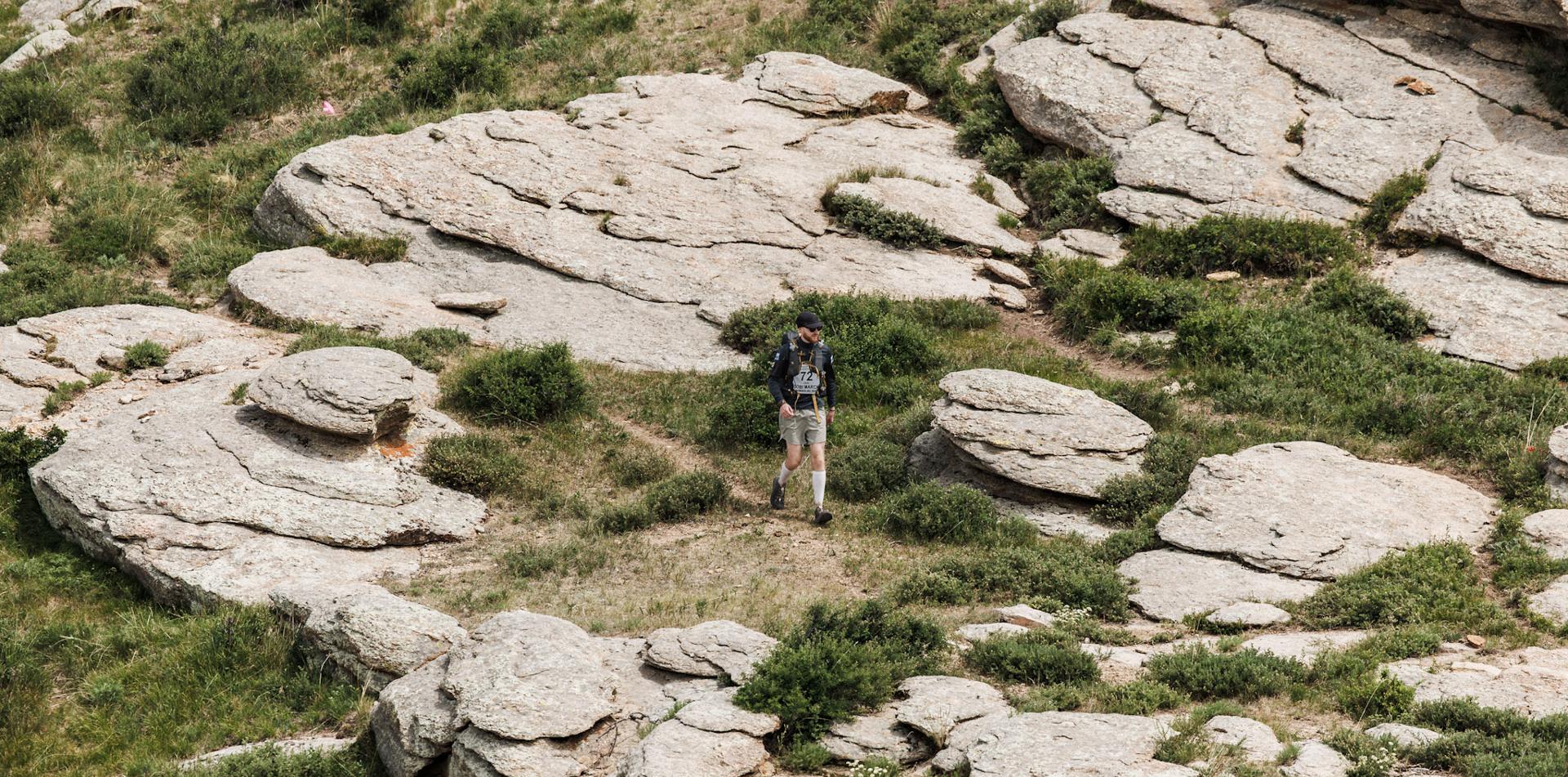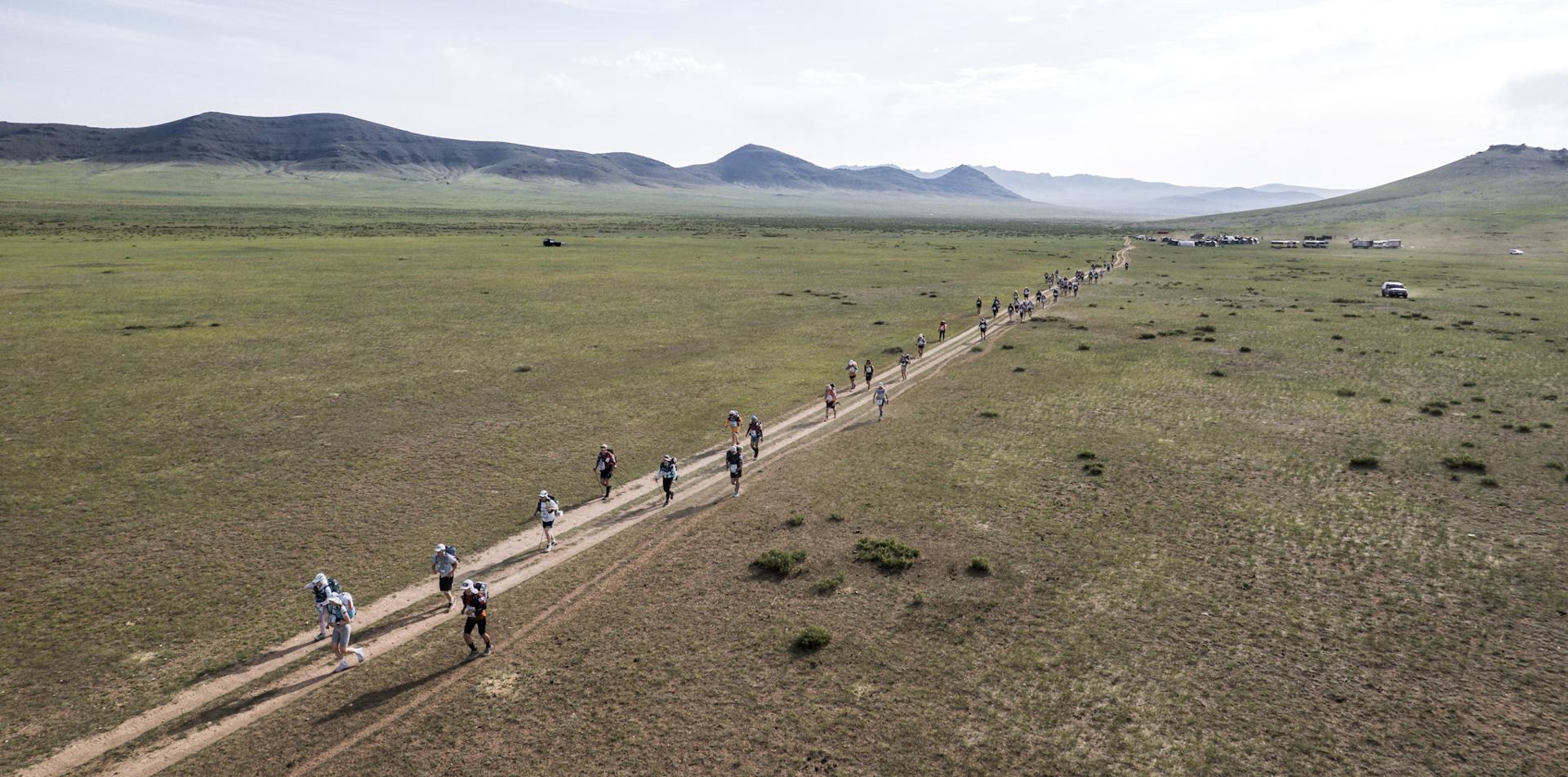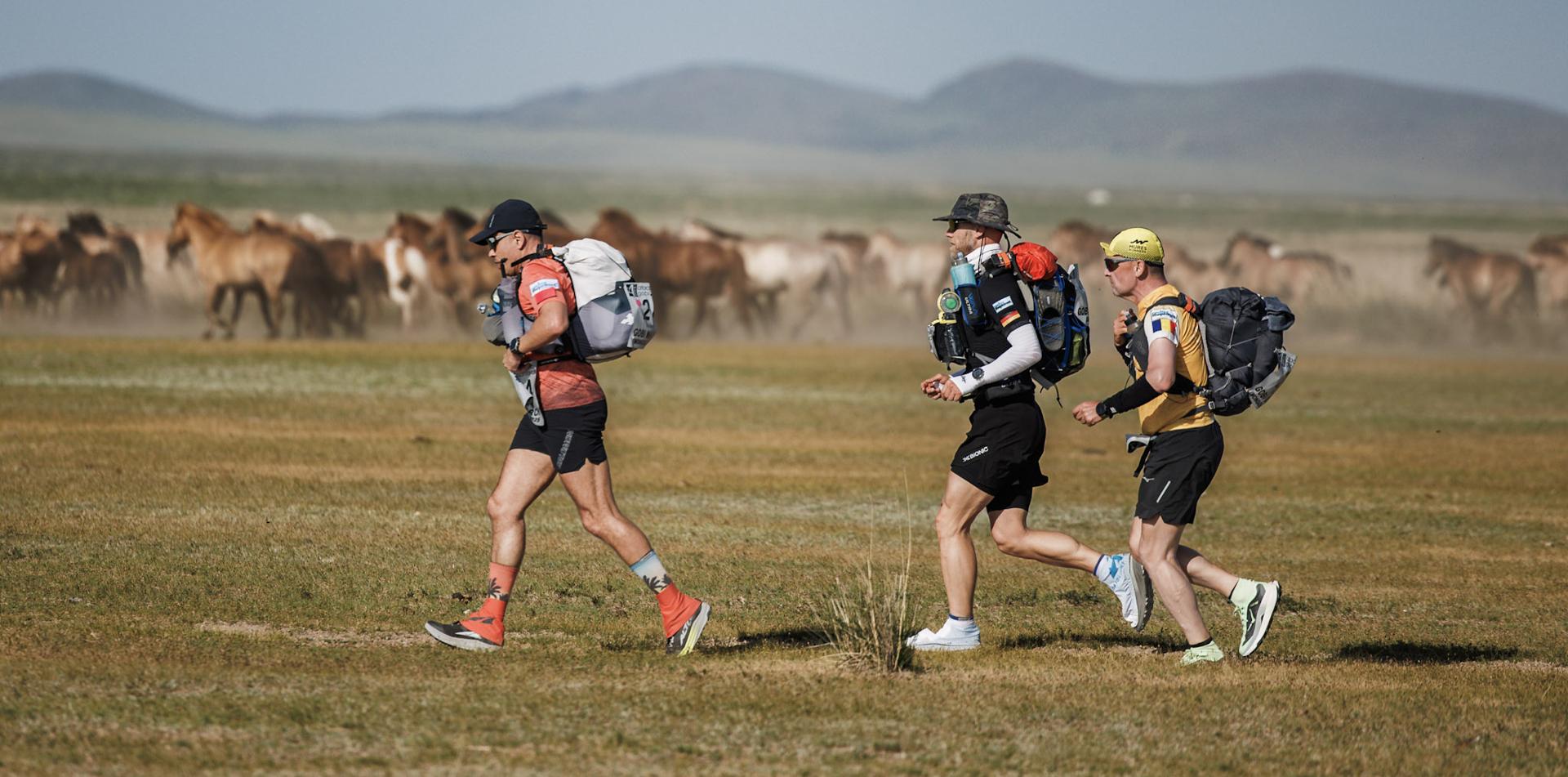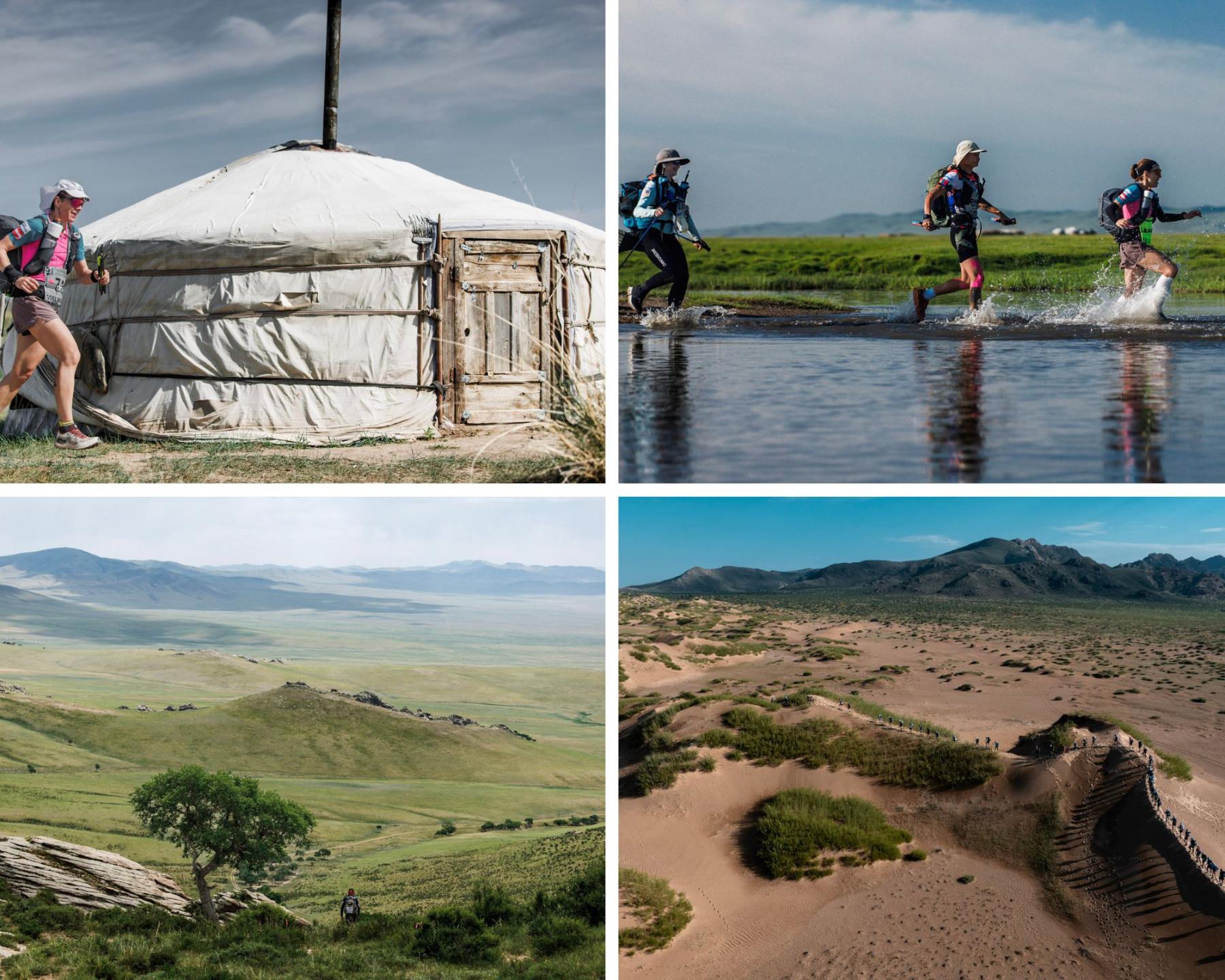Race Coverage

RACE Coverage
Gobi March (Mongolia) 2026
Dates: 21–27 June 2026
Meeting Place: Ulaanbaatar, Mongolia
Distance: 250 kilometers over six stages
Format: Self-supported ultramarathon (participants carry all gear and food; tents, water, professional staff and medical support provided)
# of Participants: 100
| Category Fee | (USD) |
| Standard Entry | $4,200 |
| Late Entry (after 21 Feb 2026) | $4,500 |
| Deposit to Secure Place | $1,500 |
1. Event Background
- The Gobi March was established in 2003 as part of the 4 Deserts Ultramarathon Series.
- Originally held in the Gobi Desert of China; relocated to the edge of the Gobi Desert in Mongolia in 2018.
- The current course traverses the UNESCO-listed Orkhon Valley, featuring steppes, sand dunes, and historical landmarks.
- The next Gobi March in June will be the 20th Edition.
2. Participation Format
- Participants may run, walk, or combine both.
- Approximate distribution:
- 20% run the entire course
- 60% use a run/walk strategy
- 20% walk the entire distance
- Daily stage cut-offs are designed to accommodate all pacing styles.
- Course is marked with pink flags (no navigation is required). At night the course is marked with highly reflective tape.
3. Speed Benchmarks
- Fastest overall completion time: ~24 hours total racing time
- Slowest overall completion time: ~70 hours total racing time
- Average pace required to finish each stage within cut-off:
- Elite runners: 10–12 km/h (6.2–7.5 mph)
- Mid-pack runners: 6–8 km/h (3.7–5 mph)
- Steady walkers: 4 km/h (2.5 mph)
4. Cultural Features
In the Mongolian countryside, you’ll experience vast open steppes, dramatic rock valleys, and endless skies known as the “Land of the Eternal Blue Sky.” Nomadic families welcome visitors into traditional gers, offering glimpses into centuries-old herding lifestyles. You’ll see buuz (dumplings) and airag (fermented mare’s milk) and horses roam wild across sweeping plains. Nights are quiet and starlit, with minimal light pollution and deep solitude. The pace is slow, the connection to nature profound, and the atmosphere reflective—making every moment feel timeless, grounded, and deeply human. It’s Mongolia at its most authentic.
5. Course Highlights
- Orkhon Valley – UNESCO World Heritage site
- Karakorum – Former capital of the Mongol Empire
- Khar Bukh Balgas Fortress – Historic ruins
- Terrain including steppes, sand dunes, rock valleys, and river crossings
- A night in a traditional Ger
- River crossings
- Horses and other animals roaming free across the countryside
6. Weather Conditions: Karakorum, Mongolia – Late June
Late June in Karakorum offers a dynamic mix of sunshine, crisp mornings, and the occasional dramatic sky—perfect for trail running with a touch of unpredictability.
Temperature Overview (Average)
| Period |
High (°C / °F) |
Low (°C / °F) |
| 21-30 June |
21–25°C 69–77°F |
11–14°C 51–57°F |
Weather Notes
- Rainfall: Light showers or brief thunderstorms can occur on some days. Rain is typically short-lived but can be intense.
- Sunshine: Around 16 hours of daylight daily, with long golden evenings.
- Wind: Occasional gusts across open terrain.
- Snow: Unlikely, but not impossible at higher elevations. We had light snow in Ulaanbaatar one year.
Local Saying:
“If you don’t like the weather, wait five minutes.” Mongolian skies shift fast—embrace the unpredictability as part of the journey. June is also a time of blooming wildflowers and grazing livestock, adding colour and life to the landscape.
7. Charity & Social Impact
- Many charities have been supported by participants. Some causes include education, conservation, mental health, and personal recovery.
- RacingThePlanet, along with participants, donates special batteries to improve the local nomads lives, as well as coloring books, pens, pencils, stickers, etc.
- RacingThePlanet support specific projects to improve the Erdene Zuu Monastery
- RacingThePlanet supports the Hashat School, a boarding school for children from the rural countryside.
8. Travel & Logistics
- Meeting Place: Ulaanbaatar, Mongolia
- Travel through a gateway city which has nonstop flights to and from Ulaanbaatar. These gateway cities (Frankfurt, Istanbul, Hong Kong, Seoul, Tokyo and Beijing) offer mostly daily flights to and from Ulaanbaatar.
- Hotel accommodation is included before and after the race (two nights)
- Transfers to / from Camp 1 provided by RacingThePlanet
9. Participant Reflections
Quotes from previous participants:
“It’s not just a race. It’s a pilgrimage through your own limits.”
“The silence of the steppe, the kindness of the locals, and the strength of the community—those are the things I’ll carry forever.”
“I came to test my body. I left with a deeper understanding of my mind.”
10. Next Steps
- Register
- Begin training and nutrition planning
- Read our Expert Advice. Review past photos and videos.
- Connect with fellow participants via RacingThePlanet’s social media channels: Instagram, Facebook, YouTube, LinkedIn, X, Tiktok
- Receive monthly updates to help you prepare for the Gobi March
11. What’s Included
An entry for a RacingThePlanet ultramarathon typically includes a comprehensive package designed to support participants through the entire race experience. Here's what's generally included:
- Race logistics and operations across all stages and checkpoints
- Hotel accommodation before and after the race (two nights)
- Shared tent accommodation at campsites each night (seven nights)
- Cultural experiences and local engagement where applicable
- Drinking water at campsites and checkpoints
- Medical support from wilderness doctors throughout the race
- Course markings
- GPS tracking
- Finisher’s medal
- Commemorative race jacket or shirt
- Post-race celebration and awards ceremony
Participants are responsible for their own food, mandatory gear, and travel to / from the race location. You can find full details on RacingThePlanet's official entry page.
12. RacingThePlanet UltraLite
RacingThePlanet UltraLite is a seven-day footrace designed for those seeking an ultramarathon experience with greater flexibility. Held alongside the full RacingThePlanet Ultramarathon, UltraLite participants run 10 or 20 kilometers per day and may skip stages if needed. Completing at least 50 kilometers earns a finisher’s medal. While competitors carry emergency gear, their main equipment is transported between camps. Participants stay in shared tents and enjoy the same stunning landscapes and cultural immersion. Open to anyone aged 18 and older, UltraLite offers endurance, adventure, and community in a more accessible format. Register here.







 Newsletter
Newsletter
 Online Store
Online Store
 Login
Login





